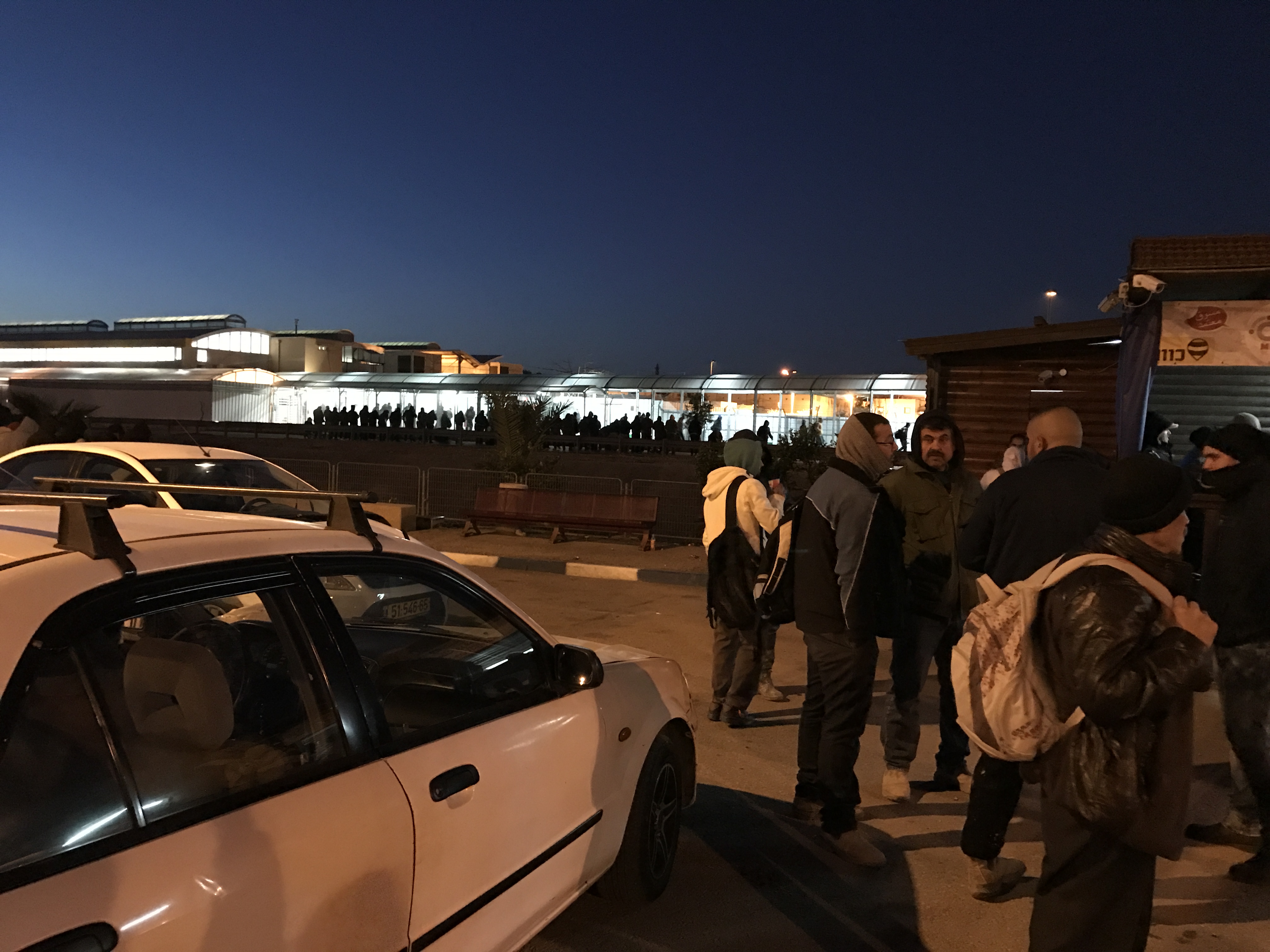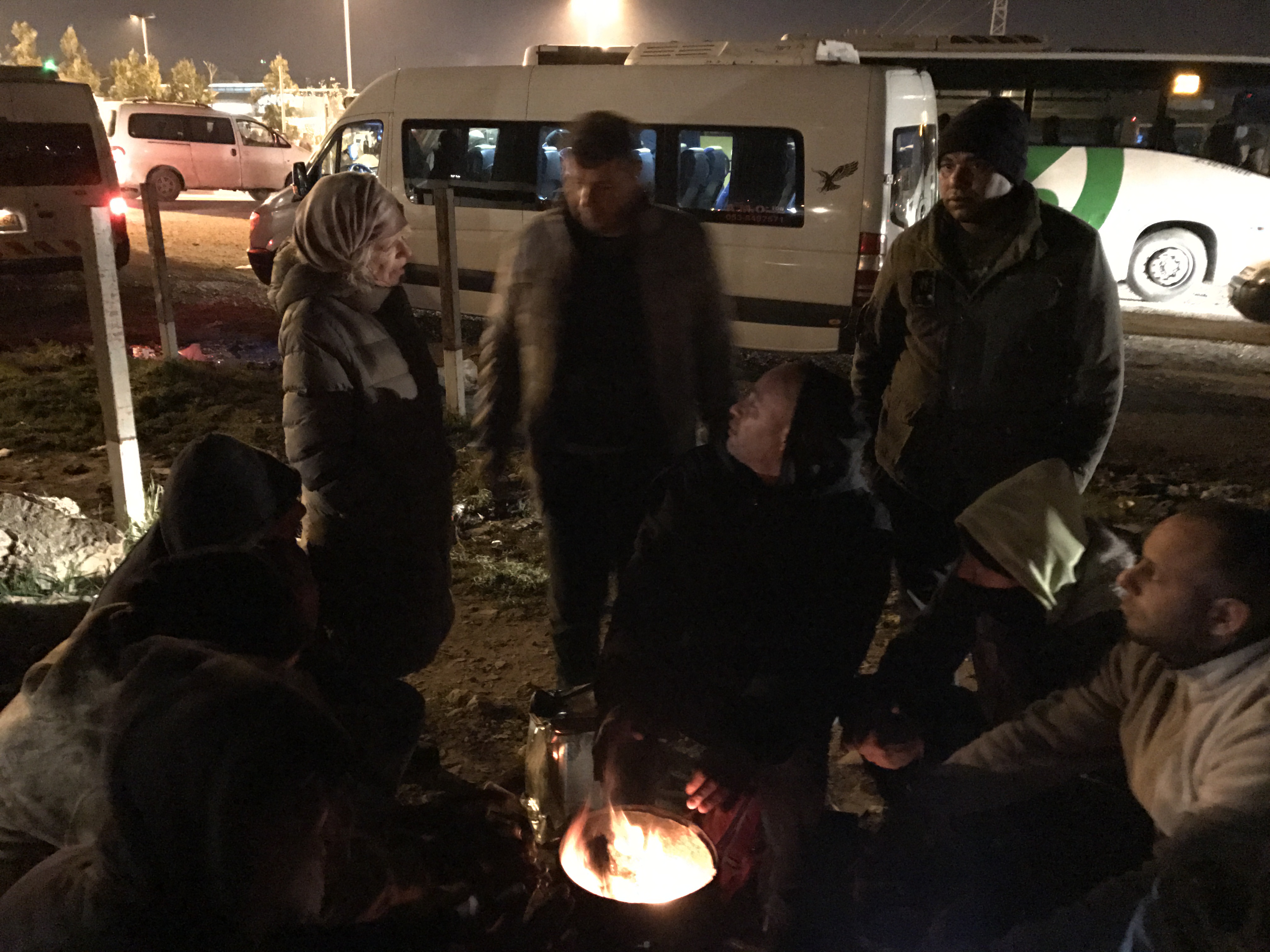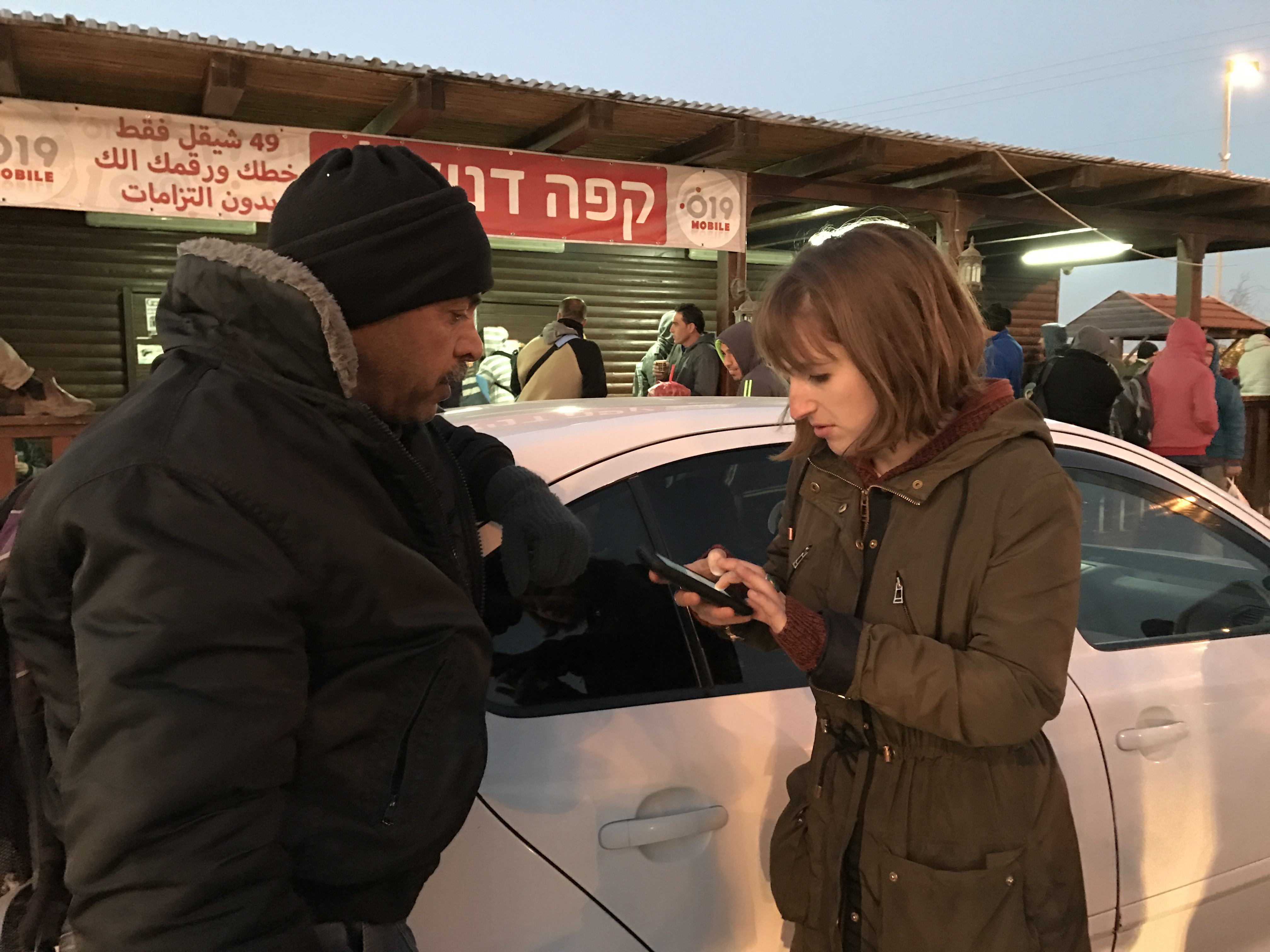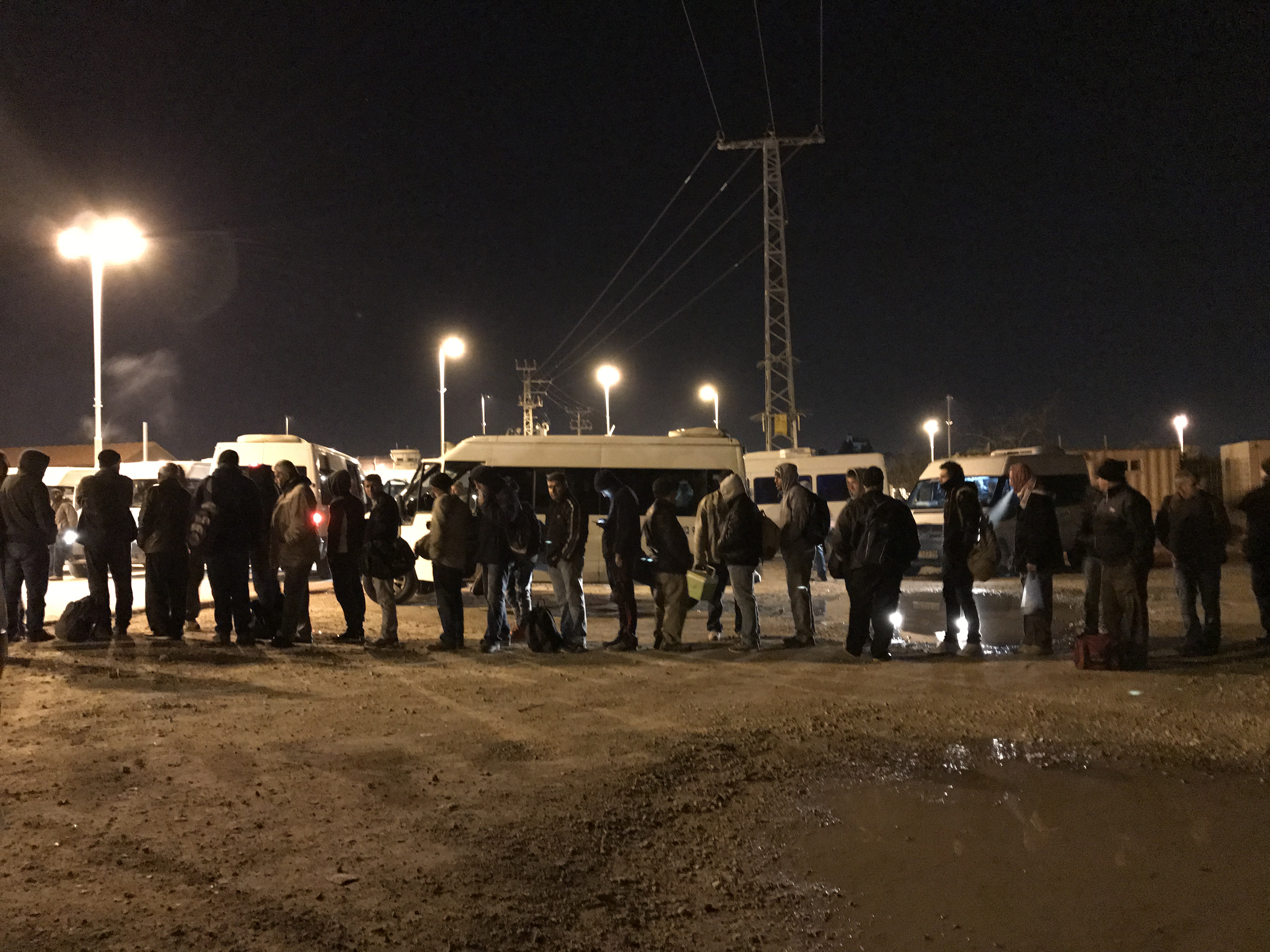Eyal Crossing
Every Sunday conditions at the crossing are difficult. Another week begins bitterly.
The “terminal”
At 04:10 there were already people walking across the muddy ground on both sides of the road leading to the crossing/inspection facilities and the DCL.
There were parked cars, apparently waiting for particular workers. People who’d already gone through added wood to a bonfire off to the side.
A few women stood on the side: we exchanged greetings; they’ve worked many years for the same contractor in the flower nurseries. When did you get here? Before dawn.
The bonfire
We walked over; we knew some people and spoke with them. They were glad to speak Arabic with our guest, the American journalist who accompanied us.
Everyone talks about how difficult Sunday is. About the long wait to avoid congestion at the crossing.
The bus driver
04:30 We left the bonfire and began walking to the inspection buildings, between the muddy puddles and the buses, when one of the drivers called to us before boarding passengers – “I must speak to you, do something, what goes on here is inhuman, even though I vote Likud, just look at this place. Aren’t they also human? Hours before they have to start work? And what terrible conditions! Look at those vehicles [the vans waiting to transport the workers] – the “Bedouin.” We charge NIS 9 to Tel Aviv. The others just exploit them and don’t allow other drivers to approach and offer rides.”
The security personnel and the manager
05:00 We went to see the line of Palestinians waiting to be inspected. Near the cages and the bars in front of the turnstiles the line is orderly and quiet. In the area between it and the fence we stood beside the Palestinians who volunteered to keep order showed up from time to time. In the background, farther away, before the entrance to the cages, were three incidents of yelling and protest: the volunteers, some of whom know Rachel, said it’s very congested and the line breaks down now and then.
In the plaza beside the line through the fenced corridor people cross more quickly through the humanitarian gate. Part of our conversation with the guard in a tower: “You’re not allowed…” “We’re allowed to observe from outside the fence, we’re Machsom Watch.” Two guards arrived to protect us.
Polite, well-organized. We spoke with one of them, N. The crossing operates as well as possible given the amount of money invested. “Everything’s about money,” he says. Every improvement is expensive. He asked where we were from; Jerusalem (our guest) and central Israel. He replied he’s from Qedumim.
We began talking about Qedumim, of course, whose settlers don’t allow the villagers of Qadum to use the road to Nablus, and that Qedumim was built on Qadum’s land. The guard was skeptical that they really owned the land. “How are they owners? Because of the Jordanians? The Ottoman?” Whose morality? Whose code? By law! Law? – ok, but international law – not exactly. “Look, during the war, the residents of Funduq begged us to keep shopping there, otherwise they would have been lost.” And why not? Funduq is in Area C: Are they even allowed to erect a shed? A factory? Enlarge a shop? Plant a grove? No!... Right, without natural development they’re lost. No – he wasn’t talking about residents of Qadum. And that’s how it went on, a dialogue of the deaf, though maybe not completely…
And now R., the crossing manager, arrives. Polite, full of good will. We reported the complaints of the Palestinians who’d already gone through, and their request that the crossing open earlier because they’re already there in any case. Those who come early won’t have to be jammed together until the crossing opens but will be able to go through when they arrive, and there won’t be congestion at the entrance to the inspection station.
The manager said that 17,000 people go through on Sunday, and according to him the facts are different. “They don’t come at 02:30-03:00, but at 03:45.” And there’s no congestion problem on the Qalqilya side. Everything is orderly.
We suggested going together to see the other side – he wouldn’t.
At 06:00 the plaza was filled with people, most of the buses had already filled up and left, many drivers of vehicles were announcing their destinations, much activity and disorder.
A “terminal” handling 17,000 people in three hours, without minimal provisions for waiting, and a single shelter which is no better than a mockery.
People get accustomed to anything, because otherwise they’d explode, and people grow numb because…




